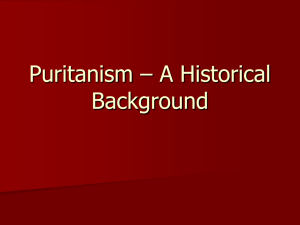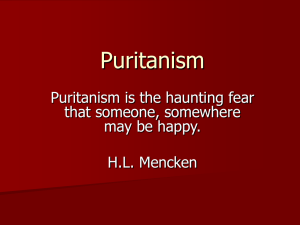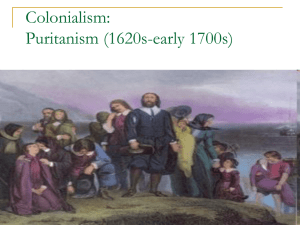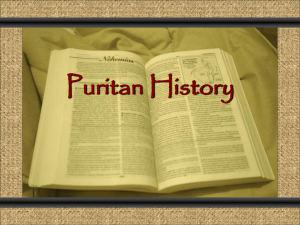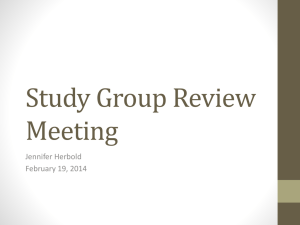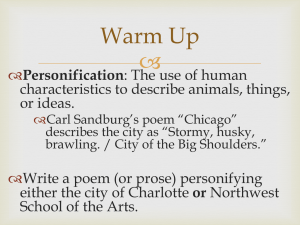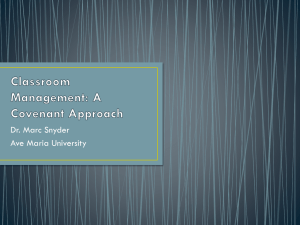The Puritan Mission and How It Failed
advertisement
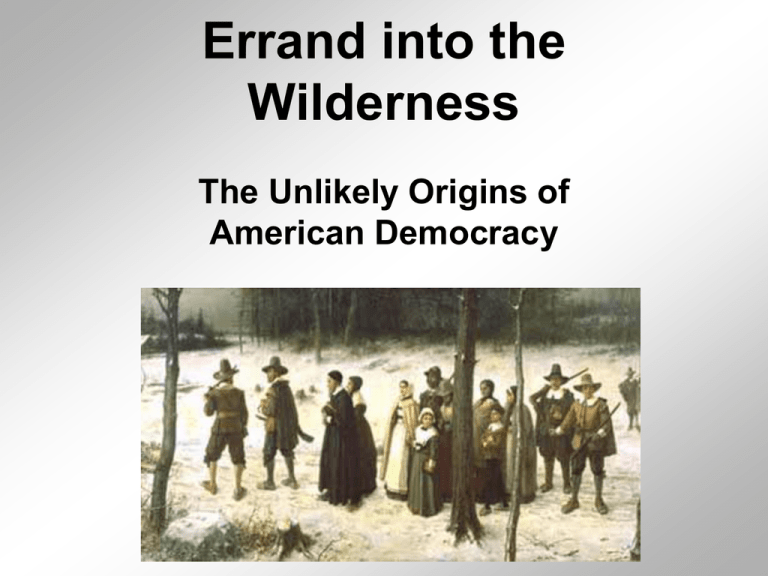
Errand into the Wilderness The Unlikely Origins of American Democracy Salem Possessed February 1692, Samuel Parris’s daughter possessed - Sarah Good Arrests did not calm fears - Court of Oyer and Terminer Trial of George Jacobs The implications 1. Ooops! 1697 – Day of Atonement 1711 – Restitution to survivors and heirs 2. Reason triumphant? - Church/state separation - Natural Philosophy (science) - Age of Enlightenment Nathaniel Hawthorne Last gasp of the medieval world? I. Puritan Paradox Undemocratic, theocratic society lays the foundations of American democracy, progressive tradition A. Puritanism and American Culture 1. “cultural empire” 2. Emphasize education, reform & “progress” through cooperative action - Abolition Temperance Feminism Transcendentalism/Unitarianism communalism Evangelicalism 3. “A Model of Christian Charity” John Winthrop, 1630 The Mission: “City on a Hill” - Americans chosen by God American “exceptionalism” 4. When the “mission” fails… - recrimination, paranoia - tendency to persecute - Failure contradicts “covenant” The Crucible - Arthur Miller Joseph McCarthy II. The Puritan Dilemma A. Something about Mary 1. Reformation in England Henry VIII “Bloody” Mary I 1535 Elizabeth I James I B. The Ghost of John Calvin 1. Reform of the High Church - hierarchy v. assembly What is a “church”? 2. Predestination a. Advantages - natural egalitarianism antinomianism Religion as Revolution b. Awful logic of Calvinism C. Your cheatin’ heart 1. Cheat #1 a. The Covenant John Cotton, 1636 b. Mayflower Compact, 1620 - community first 2. Cheat #2 Conversion process [prominent role in American Protestantism] 3. Cheat #3 Visible Saints / the Elect Max Weber D. Cheaters sometimes prosper 1. Full church membership a. receive sacraments b. baptize children (membership) c. vote on minister d. political rights Egalitarian, democratic(?) III. Things fall apart The failure of the Puritan Mission A. Internal division 1. Egalitarian but intolerant Roger Williams Anne Hutchinson B. Prosperity 1. Diverse New England economy - rise of the “Yankee” trader Whaling and commercial centers C. Population Growth 4. Westward migration - shrinking farms 5. “Visible Saints” thing comes back to bite them - God’s favor - capitalist ethic conquers communal control D. Judgment Day deferred 1. English Commonwealth, 1649-60 2. Cromwell’s betrayal 3. the Restoration, 1660 Oliver Cromwell E. Loss of Confidence 1. Lack of conversion (3rd generation) - fewer church members - fewer voters 2. “Halfway” Covenant (S. Stoddard) cheat 4 - vote, but no sacraments By 1700, Puritan church not so pure IV. Utopia Undone A. The Cheese and the Worms 1. “Now my charms are all o'erthrown” - Prospero, The Tempest - Malleus Maleficarum 1486 - Folk knowledge; “magic” - rise of Modernity B. Wrath of God 1. King Philip’s War, 1675-76 2. 1680s smallpox epidemic 3. 1684 – Royal Colony loss of political control C. Satan’s Sisters - Tituba - Sarah Good - Sarah Osborne - Martha Corey - Rebecca Nurse - Bridget Bishop West Indian homeless beggar elderly; alone; poor church attendance had illegitimate, mixed-race child; opinionated elderly; dispute with previous minister 3 husbands; non-demure; worked in pubs D. Do we know why? 1. Lysergic acid (LSD) “Little” Ice Age 2. Economic/social rivalry - Village v. Town - pro v. anti Parris - Putnams v. Porters - traditional v. mercantile E. The Upshot 1. Puritans fail “upward” 2. Communal ideals build democratic tradition - rights based on inclusion in community - participatory democracy basis of independence 3. Theological conformity (covenant) & individualism (Visible Saints) - economic liberty & social contract 4. New England fertile ground for American liberal tradition Abolition Feminism Transcendentalism Temperance Public Education Public Services Red vs. Blue regions? Competing definitions of “Liberty”

